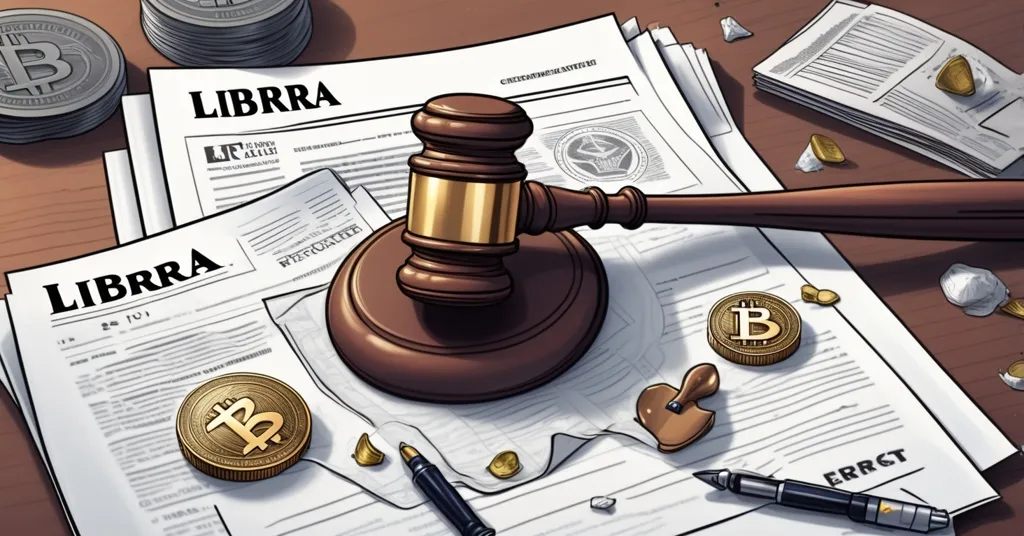President Milei Dissolves LIBRA Token Scandal Task Force Amid Legal Backlash

Argentina’s President Milei Dissolves LIBRA Token Investigation Task Force
In a bold move that has sent shockwaves through Argentina’s cryptocurrency community, President Javier Milei has disbanded the task force investigating the $LIBRA token scandal. This decision, amid ongoing probes and massive investor losses, raises serious questions about transparency and accountability in Argentina’s political and financial arenas.
- President Milei terminates LIBRA token investigation task force
- Token value plummets 98%, causing $250 million in losses
- Over 100 criminal complaints filed against Milei
The Rise and Fall of the LIBRA Token
The $LIBRA token, at the heart of this political and financial drama, saw a rapid surge and a dramatic collapse. Following President Milei’s endorsement on social media platform X, the token’s value skyrocketed to a peak of $5.20, with its total value reaching $4.5 billion. However, the token’s price crashed 98% to just $0.06 after Milei distanced himself from the project, resulting in estimated losses of $250 million for around 74,000 investors.
For those unfamiliar, a token is a type of cryptocurrency that represents a particular asset or utility on a blockchain, and market cap refers to the total value of all the tokens in circulation.
Milei’s Decision to Dissolve the Task Force
The dissolution of the Investigation Task Unit (UTI) was formalized by Decree 332/2025, an official government document published on May 19. The UTI, tasked with gathering data from various government bodies including the Anti-Corruption Office and the Central Bank of Argentina, completed its work but did not release any official findings before being terminated.
A Decree is a formal and authoritative order having the force of law, and the UTI was a specialized unit created to investigate the $LIBRA token scandal.
Legal Ramifications and Ongoing Investigations
The scandal’s impact extends beyond the financial realm, drawing significant legal attention. More than 100 criminal complaints have been filed against Milei, accusing him of fraud and deceptive promotion. In response, the Argentine Congress established a commission of inquiry and summoned officials to testify. Furthermore, international law firms have proposed class-action lawsuits against Milei on behalf of foreign investors, indicating the global repercussions of the fallout.
Judge María Romilda Servini is leading the judicial inquiry, ordering the Central Bank to disclose the banking records of Milei and his sister, Karina Milei, who serves as the Secretary General of the Presidency. Allegations have emerged that Hayden Davis, a figure linked to the LIBRA project, made undisclosed payments to Karina Milei, adding another layer to the scandal.
Broader Implications for Cryptocurrency Regulation
Despite the disbandment of the UTI, investigations into the LIBRA token continue. The Public Prosecutor’s Office, which received the gathered information from the UTI, is now spearheading these efforts. The scandal’s ramifications reach far beyond Argentina, underscoring the challenges of cryptocurrency regulation and investor protection in emerging markets.
As the situation unfolds, it’s clear that the dissolution of the UTI may have been a calculated move, yet it has not silenced the increasing clamor for accountability and justice. As one observer aptly put it:
Milei can end an investigation, but not the investigators.
Key Takeaways and Questions
- What prompted President Milei to dissolve the UTI?
The UTI had completed its assigned task of gathering information and forwarding it to the Public Prosecutor’s Office.
- How did the LIBRA token’s value change after Milei’s initial endorsement and subsequent withdrawal of support?
The token surged to a peak valuation of $4.5 billion after Milei’s endorsement but plummeted 98% to $0.06 following his withdrawal of support.
- What are the current legal actions being taken against President Milei in relation to the LIBRA token?
Over 100 criminal complaints have been filed against him, a judicial inquiry led by Judge María Romilda Servini is ongoing, and international class-action lawsuits have been proposed by law firms.
- What was the financial impact on investors due to the LIBRA token’s collapse?
The collapse resulted in estimated losses of $250 million for approximately 74,000 investors.
- What role did Hayden Davis allegedly play in the LIBRA token scandal?
Hayden Davis, part of the LIBRA project team, allegedly sold large portions of his holdings, contributing to the token’s price crash, and is suspected of making undisclosed payments to Milei’s sister.
This scandal serves as a stark reminder of the volatility and risks inherent in the cryptocurrency market, as well as the urgent need for robust regulatory frameworks to safeguard investors. As the crypto community watches closely, the outcomes of these investigations could set a precedent for handling similar cases in the future. Can a president really dissolve an investigation into a major financial scandal without consequences? The world is watching, and the answers could shape the future of crypto regulation. The legal consequences of dissolving investigations are a critical aspect to consider in this context.



